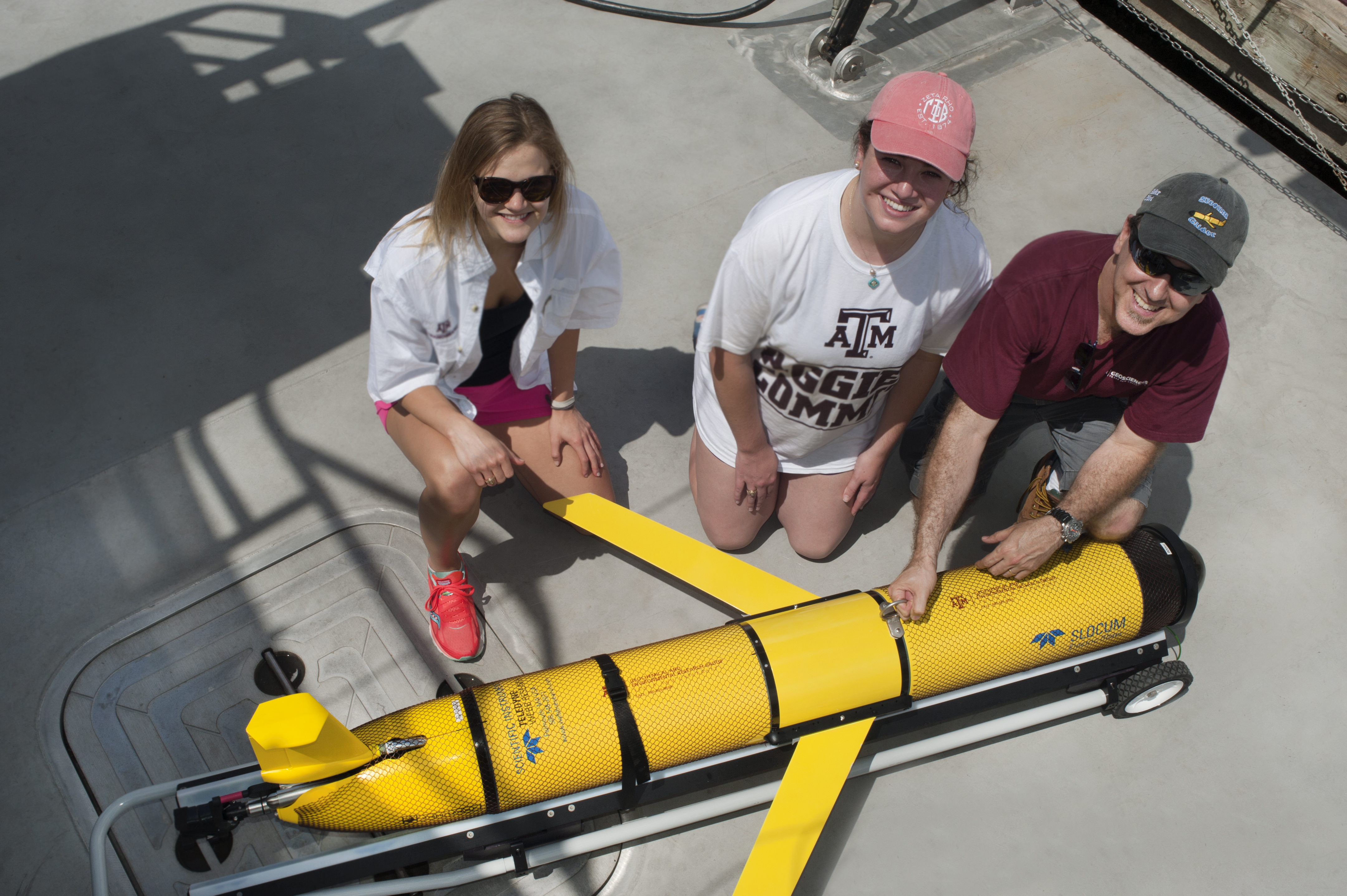
Oceanography is the interdisciplinary science that focuses on the ocean, its contents, and its boundaries. Whereas typical graduate programs lead to progressively more specialization, oceanography as an interdisciplinary field admits graduates of specialized areas such as biology, chemistry, geology, geophysics, mathematics, physics, or engineering and initially broadens their education with a core of required oceanography courses.
These core courses include the four specializations of the oceanography program — biological, chemical, geological, and physical oceanography—as well as a communicating ocean science course. After this exposure to the interdisciplinary nature of oceanography, the graduate student refocuses on their particular subject area to pursue research at the leading edge of the science.
M.S. AND PH.D. IN OCEANOGRAPHY
Thesis-based graduate work in Oceanography is offered at both the Master of Science (M.S.) and Doctor of Philosophy (Ph.D.) levels. Programs are designed to provide the student with a comprehensive understanding of the fundamentals of oceanography, with a core emphasis on communication and data collection/evaluation. Research and thesis completion comprise a significant part of each program.
MASTER OF OCEAN SCIENCE AND TECHNOLOGY
The Master of Ocean Science and Technology (MOST) is a non-thesis professional degree. It provides students with education and training from scientists who are active researchers and educators working at the cutting edge of ocean sciences throughout the global ocean, from the Gulf of Mexico to the Southern Ocean around Antarctica.

GRADUATE DIRECTOR
Chrissy Stover Wiederwohl
Assistant Department Head for Engagement and Graduate Affairs
